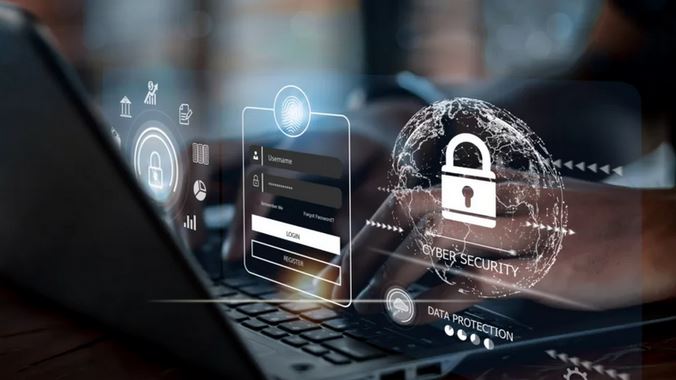Introduction
In today’s digital age, the internet is an indispensable tool for work, communication, and entertainment. However, with the increasing number of cyber threats, protecting your online activities has become crucial. This article provides simple yet effective steps to enhance your internet security.
Understanding the Basics of Internet Security
Internet security, also known as cybersecurity, is the practice of protecting computer systems, networks, and data from digital attacks. It involves protecting sensitive data, hardware, and software from unauthorized access, use, alteration, or disclosure.
Building a Strong Foundation
Strong Passwords:
- Develop passwords that include a mix of uppercase and lowercase letters, numbers, and symbols.
- Avoid using personal information like birthdays or names.
- Explore using a password manager to create and securely store complex passwords.
Software Updates:
- Keep your operating system, apps, and antivirus software up-to-date.
- Software updates frequently include security patches to fix vulnerabilities.
- Enable automatic updates whenever possible.
Beware of Phishing:
- Be cautious of suspicious emails, links, or attachments.
- Verify the sender’s identity before clicking on links or providing personal information.
- Look for typos, grammatical errors, or unusual requests in emails.
Secure Your Wi-Fi:
- Use a strong, unique password for your Wi-Fi network.
- Enable Wi-Fi Protected Access (WPA or WPA2) encryption.
- Avoid using public Wi-Fi for sensitive activities like online banking or shopping.
Backup Your Data:
- Regularly create backups of important files on an external hard drive or cloud storage platform.
- This protects your data from loss due to hardware failure, ransomware, or other threats.
Protecting Yourself Online
Be Mindful of Social Media:
- Limit the personal information you share online.
- Manage your privacy settings to limit who can view your content.
- Be cautious about accepting friend requests from strangers.
Secure Online Shopping:
- Use reputable online retailers with secure payment gateways.
- Verify the website’s security by looking for the padlock icon in the address bar.
- Avoid using public Wi-Fi for online shopping.
Protect Your Devices:
- Protect your devices with antivirus and anti-malware software.
- Use a firewall to protect your network.
- Be cautious about downloading apps from unknown sources.
Educate Yourself:
- Be aware of the latest cybersecurity risks and follow recommended security practices.
- Read articles, attend webinars, and follow reputable cybersecurity experts.
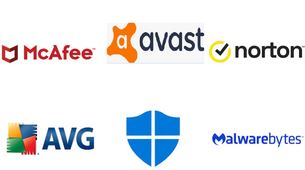
The Importance of Two-Factor Authentication (2FA)
Two-Factor Authentication (2FA) enhances your online account security by requiring two separate forms of identification for access. This makes it much more difficult for unauthorized individuals to gain access, even if they have your password.
How does 2FA work?
When you enable 2FA for an account, you’ll be prompted to provide a second form of verification in addition to your password. This could be a:
- Code sent to your phone via SMS or a dedicated app
- Security token or hardware key
- Unique physical characteristics like fingerprints or facial recognition
Why is 2FA important?
2FA is crucial because it significantly reduces the risk of unauthorized access to your accounts. Even if someone has your password, they will still need access to your second form of verification to log in. This makes it much more difficult for hackers to gain access to your accounts, especially if you use a strong, unique password.
Examples of when 2FA is particularly important:
- Online banking and financial accounts: Protecting your financial information is crucial. 2FA can help prevent unauthorized access to your accounts and prevent financial losses.
- Email accounts: Email accounts are often used to access other online services and accounts. Enabling 2FA for your email account can help protect access to your other accounts.
- Social media accounts: Social media accounts contain a lot of personal information. 2FA can help prevent unauthorized access to your accounts and prevent your personal information from being misused.
How to enable 2FA:
Most online services offer 2FA as an option. To enable 2FA for an account, simply go to the account settings and look for the 2FA option. Follow the instructions provided to set up 2FA.
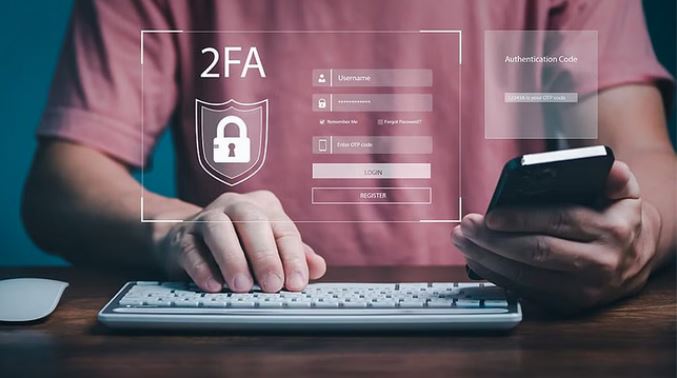
Additional tips for using 2FA:
- Use a strong, unique password for each account. Even if you’re using 2FA, it’s still important to have strong passwords.
- Enable 2FA for all of your important accounts. This includes your email account, social media accounts, online banking accounts, and any other accounts that contain sensitive information.
- Be cautious of phishing attempts. Phishing attacks often try to trick you into revealing your login credentials, including your 2FA codes. Avoid responding to unexpected emails, calls, or messages that ask for personal details.
By enabling 2FA for your online accounts, you can significantly reduce the risk of unauthorized access and protect your personal information.
The Role of Firewalls in Secure Internet Connections
A firewall acts as a digital gatekeeper, monitoring and controlling network traffic to prevent unauthorized access and malicious activities. It’s a crucial component of a comprehensive secure internet connection.There are two primary types of firewalls: software and hardware.
Software Firewalls: These are installed on individual devices, such as your computer or smartphone. They are often built into operating systems or can be installed as separate applications. Software firewalls are a good option for individuals and small businesses on a budget. They provide a basic level of protection, but their effectiveness can be limited compared to hardware firewalls.
Hardware Firewalls: These are dedicated network devices that are installed between your network and the internet. They offer more advanced security features and can handle higher traffic volumes than software firewalls. Hardware firewalls are ideal for businesses with complex networks and high security requirements.
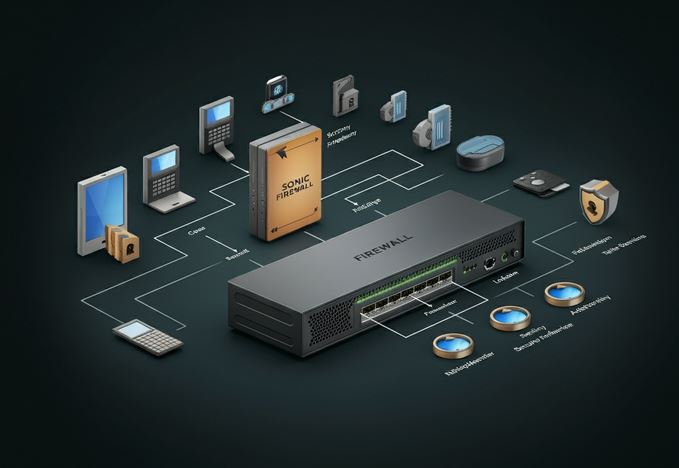
Key Features of Firewalls for Secure Internet Connections:
- Packet filtering: Firewalls examine incoming and outgoing network packets to determine whether they should be allowed or blocked based on predefined rules.
- Intrusion detection and prevention: Firewalls can detect and block attempts to exploit vulnerabilities in your network.
- Application control: Firewalls can restrict access to specific applications or websites to prevent unauthorized use.
- Virtual private networks (VPNs): Some firewalls include VPN functionality, which can encrypt your internet traffic and protect your privacy.
Choosing the Right Firewall for Secure Internet Connections:
The best type of firewall for you depends on your specific needs and budget. If you’re an individual or small business with limited network complexity, a software firewall may be sufficient. However, for businesses with complex networks and high security requirements,a hardware firewall is often the better choice.
Additional Considerations for Secure Internet Connections with Firewalls:
- Maintenance and updates: Regularly update your firewall software or firmware to ensure it’s protected against the latest threats.
- Configuration: Firewalls can be complex to configure, so it’s important to follow best practices and consider professional assistance if needed.
- Integration with other security measures: Firewalls should be used in conjunction with other security measures, such as strong passwords, software updates, and antivirus protection,to create a comprehensive security strategy.
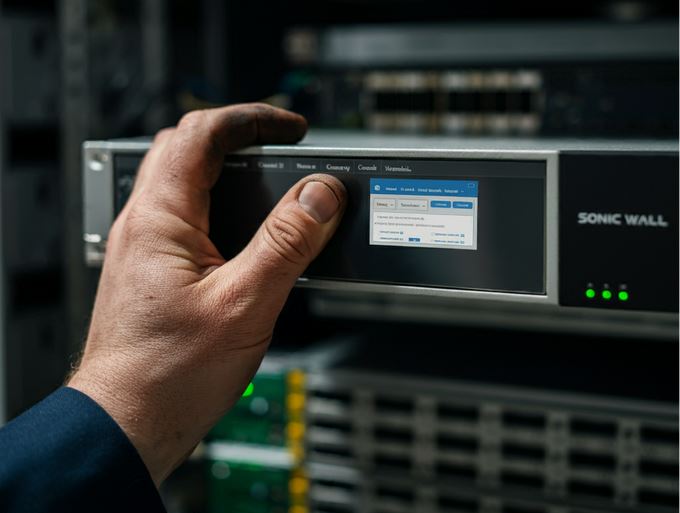
Concession: It’s Not Always Easy
While these tips are essential, implementing them can be time-consuming and inconvenient. Balancing security with convenience is a challenge. However, the potential consequences of a data breach far outweigh the minor inconveniences of taking precautions.
Take Away
- Be cautious of public Wi-Fi networks. Avoid using public Wi-Fi for sensitive activities like online banking or shopping. If you must use public Wi-Fi, consider using a VPN (Virtual Private Network) to encrypt your data.
- Beware of social engineering attacks. Social engineering is a tactic used by cybercriminals to trick people into revealing personal information or performing actions that could compromise their security. Exercise caution when dealing with unsolicited contact that seeks personal information.
- Regularly review your security settings. Review your privacy settings on social media, email, and other online platforms to ensure they match your preferences.
- Stay informed about the latest cyber threats. Keep up-to-date with the latest security news and trends to be aware of emerging threats and learn how to protect yourself.
- Consider professional help. If you’re unsure about your security measures or need assistance with a specific issue, consider consulting a cybersecurity professional.
FAQs
What is a VPN?
A VPN (Virtual Private Network) establishes a secure, encrypted connection between your device and the internet.
How often should I update my software?
It’s generally recommended to keep your operating system, applications, and antivirus software up-to-date with the latest security patches. Check for updates regularly or enable automatic updates.
What is a firewall?
“A firewall acts as a security gatekeeper, monitoring and controlling network traffic. It helps to prevent unauthorized access to your computer or network.
What is two-factor authentication?
Two-factor authentication (2FA) adds an extra layer of security by requiring two different forms of identification to access an account. This typically requires something you know (like a password) and something you possess (like a code sent to your phone).
What actions should I take if I suspect I’ve been compromised by a cyberattack?
If you believe you’ve been the target of a cyberattack, take immediate action. Disconnect your device from the internet, change your passwords, and contact your antivirus software provider for assistance.
What is phishing?
Phishing is a fraudulent scheme that attempts to acquire sensitive information by posing as a trustworthy source.
How often should I change my passwords?
It’s advisable to change your passwords periodically, ideally every three to six months.
Is public Wi-Fi completely unsafe?
While public Wi-Fi can be risky, using a VPN can help protect your data.

